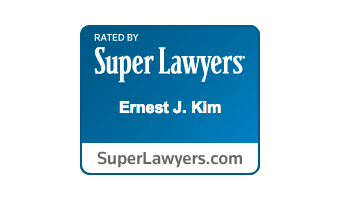Could you be in breach of your Trustee Duties?
A Trust is a legal document that contains your instructions for what you want to happen to your assets if you die or become incapacitated.
A Trust is controlled by its “Trustee,” who is usually a family member, close friend, or a professional fiduciary (a bank or private licensed professional fiduciary) chosen by the person who made the Trust and put their property into it (the “settlor” or “grantor” of the Trust). When you make a Living Trust, you would usually name yourself to be both the trustee and the beneficiary of your own Trust during your lifetime, and the Trust’s assets would be available to you for all your needs. You can also change or cancel your own Living Trust. During the time you are the Trustee of your own Trust and you have the ability to revoke it, all of the Trust assets and information are held by you for your own use, and you do not have duties to anyone else.
However, all of that changes when you are not the Trustee of your own Trust.
When a successor trustee takes over due to death or incapacity of the Settlor/person who made the Trust, the new Trustee must manage the Trust in accordance with California law, and the new Trustee has important responsibilities in the management of the trust assets. They are accountable for their actions or inaction, to the beneficiaries of the Trust who are the actual asset owners.
We see many Successor Trustees who are well meaning with good intentions, but find themselves in trouble because they simply did not understand the legal responsibilities attached to the Successor Trustee’s role; More importantly, they didn’t get the right help in time, to properly document and follow the Trust’s instructions and to fulfill their “fiduciary duties.”
Because a Trustee is managing someone else’s assets, they are required by law to act in accordance with their fiduciary duties, including but not limited to the following:
- A Trustee must administer the trust solely in the interest of the beneficiaries and must not use or deal with trust property for their own benefit or for purposes unconnected with the trust;
- If a trust has two or more beneficiaries, the Trustee has a duty to deal fairly and act impartially with each of them. This means that a Trustee who is also a beneficiary must exercise special care to make sure their decisions as Trustee do not appear to benefit their own interests as a beneficiary, at the expense of another beneficiary;
- A Trustee must not mix Trust property with their personal assets;
- A Trustee must safeguard the Trust assets and manage/invest them prudently, which means a Trustee must be even more cautious with Trust assets, than they may be with their own;
- A Trustee must share important information regarding the Trust with ALL of the Trust’s beneficiaries, and they must keep very clear records of what has been done with trust assets, as well as records about trust income/expenses, etc., so they can provide accountings to the beneficiaries at regular intervals;
- A Trustee is responsible for distributing assets to the beneficiaries properly, and in a timely manner.
In addition to the fiduciary duties of a Trustee, there are a variety of time sensitive tasks they are expected to actively keep track of and complete, including but not limited to the following:
- Review and understand the trust document and it’s instructions, in order to carry them out;
- Ascertain the identities and contact all trust beneficiaries and heirs by providing formal Notification by Trustee at the outset of taking office as Successor Trustee;
- Locate assets and contact financial institutions and parties in possession of those assets;
- Marshall/gather all trust assets and hold them as successor Trustee, so that the assets are under the new Trustee’s control at all times;
- Confer with tax professionals regarding Trust tax returns and Estate Tax Analysis for tax reporting purposes;
- Confer with financial advisors, business attorneys, insurance providers, CPA’s, stock brokers, real estate professionals, etc., as necessary to obtain professional level advice regarding Trust asset management;
- Create and fund any sub-trusts required by the Trust instrument;
- Keep accounting records and provide Trust accountings;
- Pay trust related expenses, taxes and bills, including arranging for tax filings for the Trust;
- Sell Trust Assets (and/or determine which to sell/keep), as needed to cover taxes, fees, and costs and to effectuate the distribution instructions;
- Distribute assets to Beneficiaries and terminate the Trust.
We have seen the many ways in which unwary or uninformed Trustees can make critical mistakes that open them up to liability from complaints and claims of unhappy beneficiaries. If you find yourself named in a Trust to carry out these important duties for someone, this is not the best time to try to DIY your way through what is potentially a financial and legal minefield. We find that many Trustees are laypersons (not professional Trustees who deal with legal or financial matters a daily basis) who want to do a good job, but they don’t know that they can and should seek the professional guidance they need in order to understand and complete the job of a Trustee to the level required by law. As a result, they can end up breaching their duties, missing important deadlines and steps, and causing financial damages to the trust and ultimately to the beneficiaries they are supposed to protect.
Trustees are also often unaware of their right to receive reasonable compensation from the Trust for their work as Trustee, or of how to keep track of their time so they can calculate and justify their fees and other costs that were incurred in carrying out their duties.
Trustees don’t have to operate in the dark, especially since the Trust assets themselves can be used to obtain and pay for the professional advice the Trustee may need in order to do their job properly. Once a Trustee is in breach of their duties, it doesn’t matter if the breach was accidental or intentional; one result may be that the Trust will no longer cover the costs, which can be substantial to fix their mistakes and/or the Trustee may be removed from office and replaced with another Trustee. If a Trustee is not handling their responsibilities properly, they need to get professional guidance to do so, and if they still cannot live up to their duties, it is in the best interests of all parties, including an overwhelmed Trustee, to remove them from office to limit any further damage to the Trust.
We have helped countless Trustees properly manage their trustee responsibilities from the initial notification procedures to a successful final termination of the Trust without incurring personal liability. We have also helped Trustees who find themselves overwhelmed and in trouble, catch up with the tasks that need to be completed for the benefit of all parties.
We have also helped beneficiaries get answers they need, and to make sure their trust assets are properly managed, protected, and accounted for. Some Trustees are just not prepared for the demands of the job, while others may have received improper information or have wrong intentions. We have assisted beneficiaries who had been unaware of their rights to finally receive the right information, and the Trust assets intended for them.





